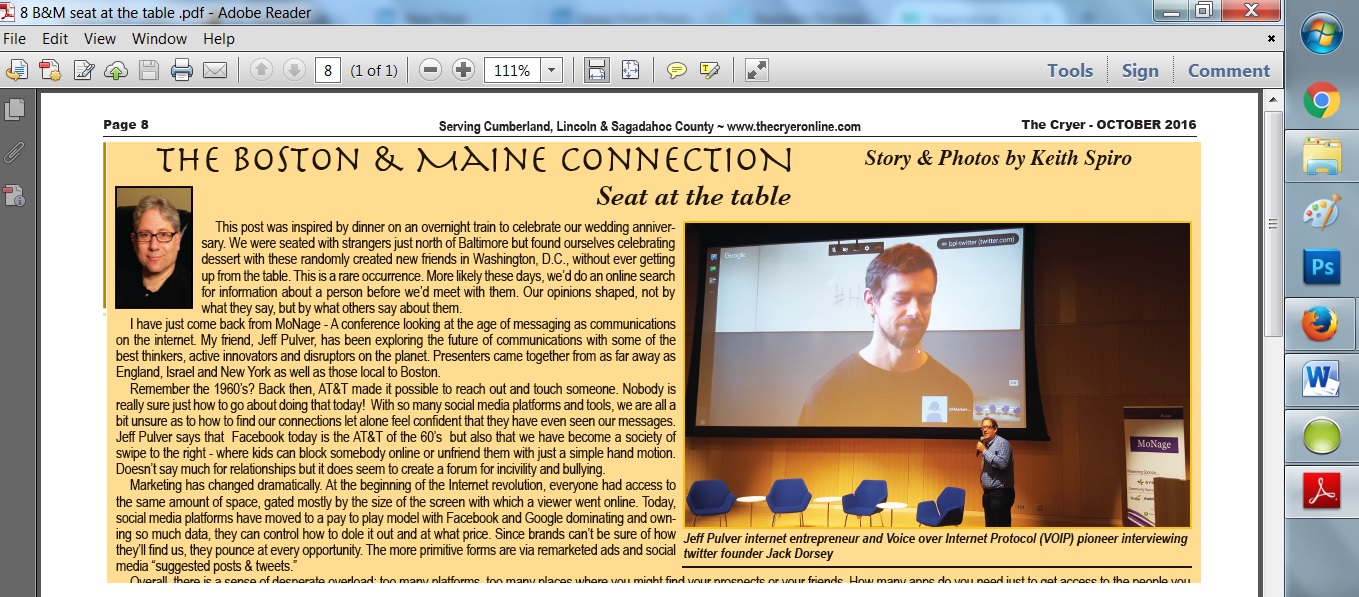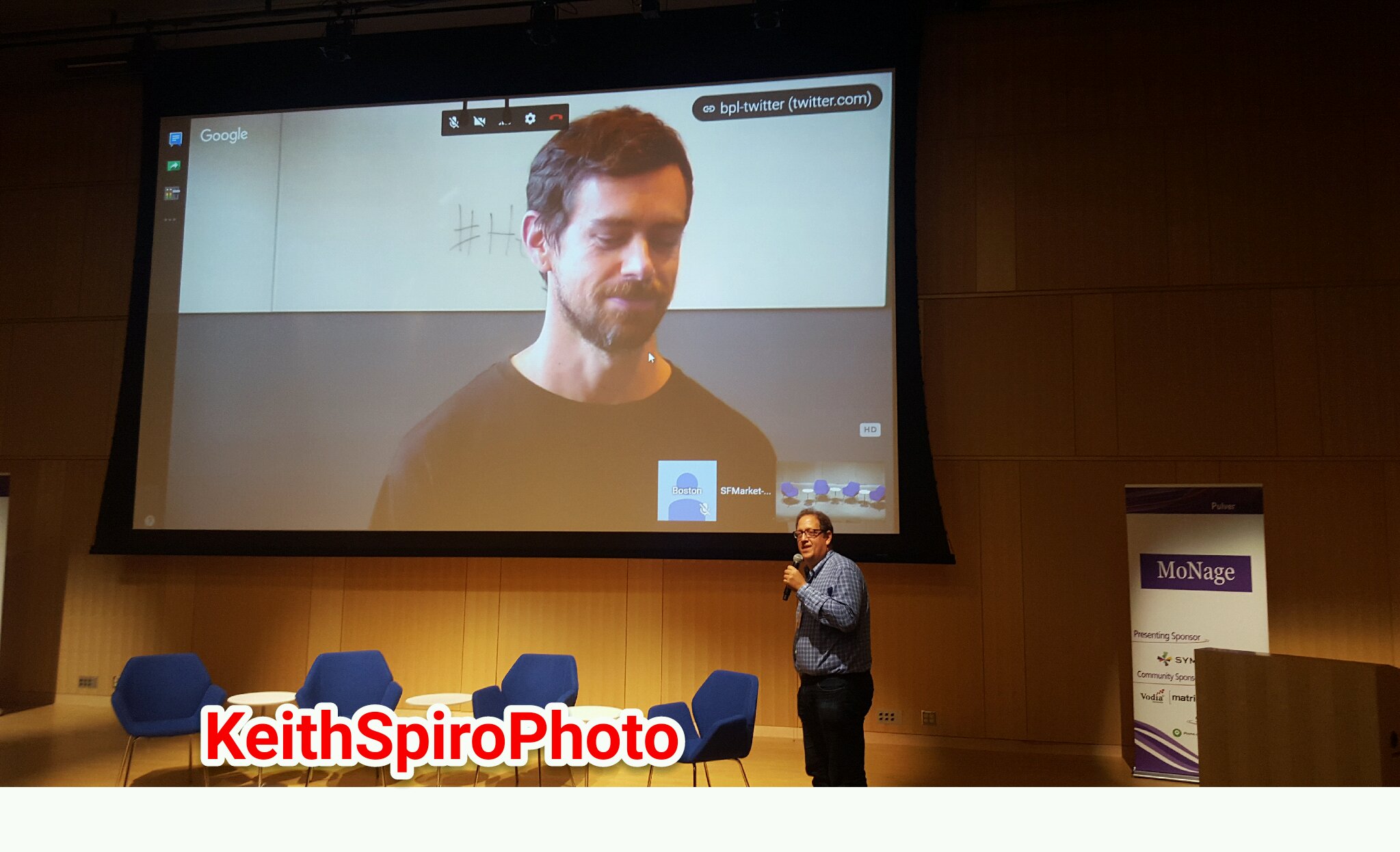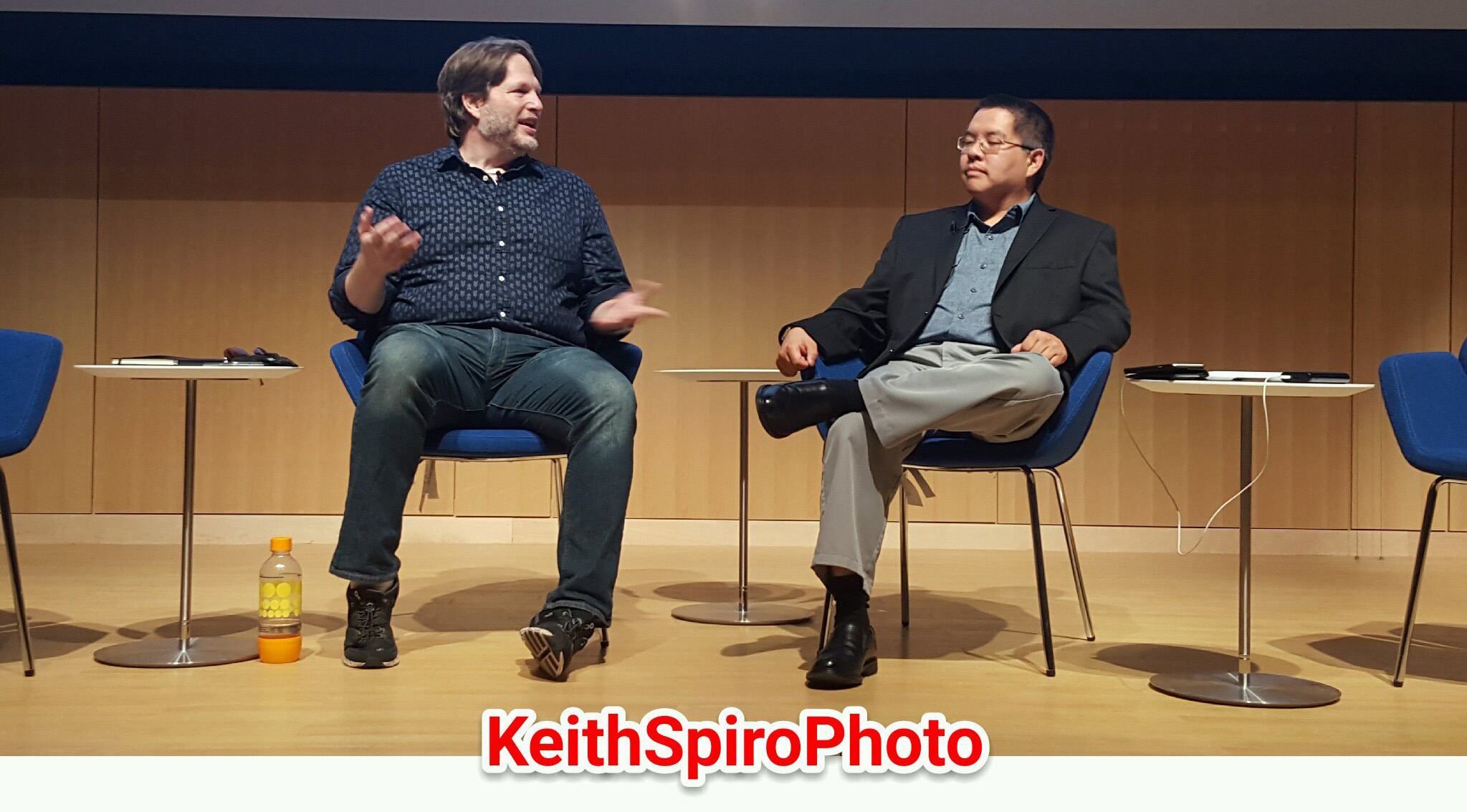
Do you stress over getting a seat at the RIGHT table? Are you suffering from FOMO? This post was inspired by dinner on an overnight train to celebrate our wedding anniversary. We were seated with strangers just north of Baltimore but found ourselves celebrating dessert with these randomly created new friends in Washington DC, without ever getting up from the table. This is a rare occurrence. More likely, these days, we’d do an online search for information about a person before we’d meet with them. Our opinions shaped, not by what they say, but by what others say about them.

I’ve just come back from MoNage – A conference looking at the age of messaging as communications on the internet. My friend, Jeff Pulver, has been exploring the future of communications with some of the best thinkers, active innovators and disruptors on the planet. Presenters came together from as far away as England, Israel and New York as well as a couple of well known locals in Boston.

Remember the 1960’s? Back then, AT&T made it possible to reach out and touch someone. Nobody is really sure just how to go about doing that today! With so many social media platforms and tools, we are all a bit unsure as to how to find our connections let alone feel confident that they have even seen our messages. Jeff Pulver says that Facebook today is the AT&T of the 60’s but also that we have become a society of swipe to the right – where one can block somebody online or unfriend them with just a simple hand motion. Doesn’t say much for relationships but it does seem to create a forum for incivility and bullying.
Let’s face it, marketing has changed dramatically. Chris Brogan and Chistopher Penn, two giants in the world of digital communications and messaging, co-founded PodCamp ten years ago. Ancient history that became part of their wild and wide ranging conversation on stage about the changes in media and community. As I see it, going back those ten years, everyone had access to the same amount of space, gated mostly by the size of the screen with which a viewer went online. Podcasts were unique with radio-like portability. Today, portability is the device in our pockets. There is an explosion of ways people communicate. What’s formal? What’s a chat between friends? How do Millennials differ in their use of communication tools at work and with friends?
Social media platforms have moved to a pay to play model with Facebook and Google dominating and owning so much data, they can control how to dole it out and at what price. Since brands can’t be sure of how they’ll find us, they pounce at every opportunity. The more primitive forms are via remarketed ads and social media “suggested posts & tweets.”
Overall, there is a sense of desperate overload; too many platforms, too many places where you might find your prospects or your friends. How many apps do you need just to get access to the people you regularly talk to, if you even call it that anymore?
To be effective, marketing must be real, trustworthy and transparent. We are more likely to listen to our peers than to any marketer’s message. Brands are learning this. We all need to be aware of how our “likes” are being used.
These days, “The Google” knows all. It has an answer to nearly everything and it has the ability to match up our search patterns with marketers. This makes us complicit in the skewed results we see. We each live in our own personal bubble of internet search serving up only things that we are likely to click. If we like something, we will only see positive things about it. If we dislike someone, we will only see negative things about them.
With all the online access points and nearly 2 billion people on Facebook, there’s a false sense of anonymity. But just a quick google search for my name yielded 395,000 results in less than half a second. How do you fare? Have you done a search for yourself online? Try it.
Our future is fully dependent on the digital reputations we build daily. This is not necessarily the reputation we want to have but the one that more correctly reflects the expectations of the seeker. The one thing we all want in life and in business is acceptance. A virtual or real seat at the table.